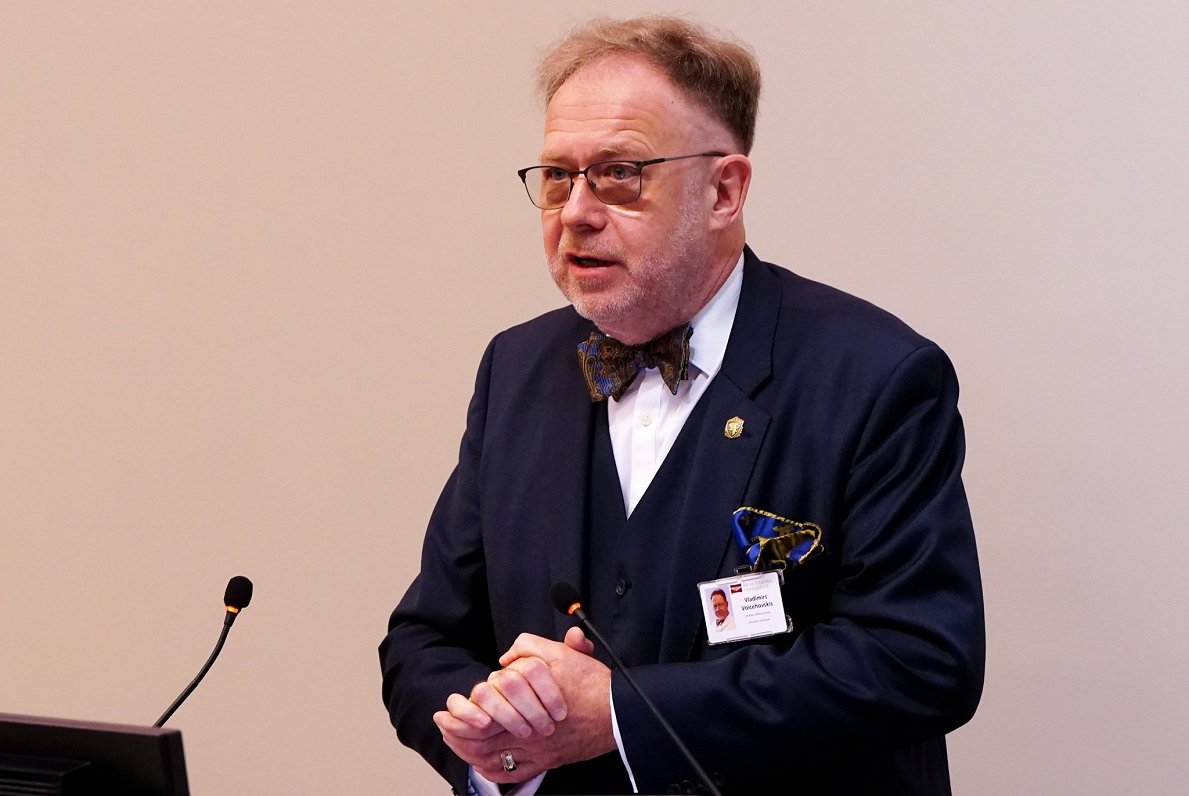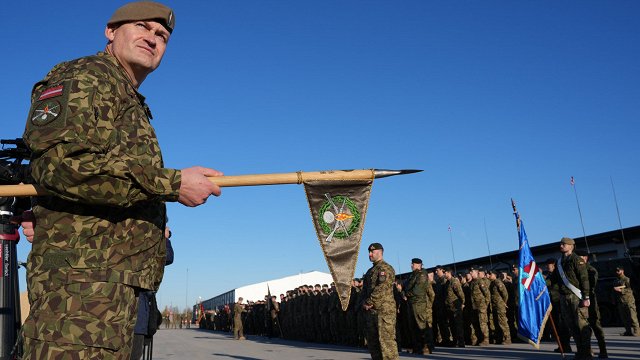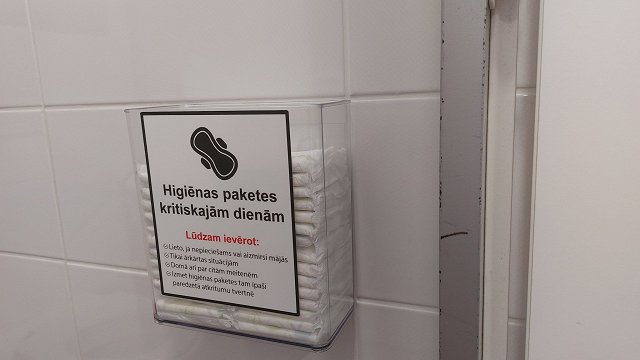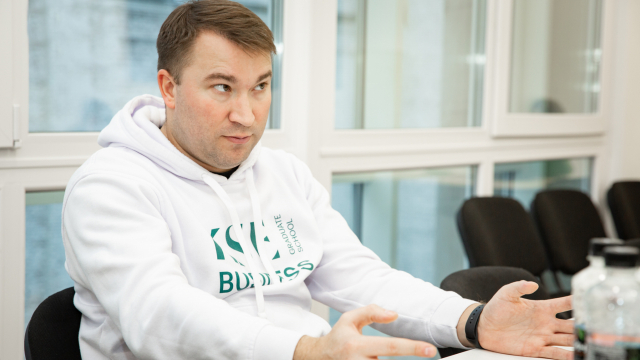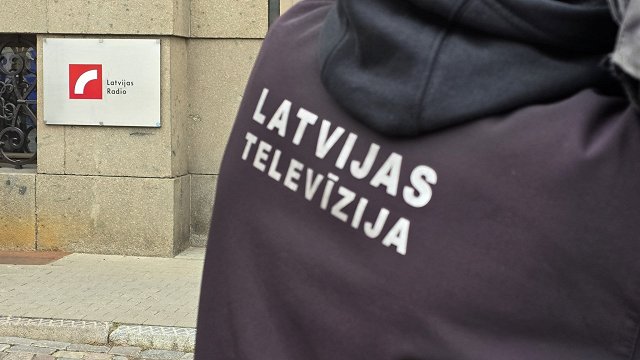My primary specialty is maxillofacial surgery, but I also studied military clinical toxicology and anaesthesiology and intensive care. Since my focus is on acute situations, I wrote my doctoral thesis on post-traumatic stress disorder in soldiers on a peacekeeping mission. We spent half a year observing and studying Latvian peacekeepers in Afghanistan. The results were very good - we even received an international patent for a method of preventing post-traumatic stress disorder. Post-traumatic stress disorder is a set of symptoms that a patient develops after a traumatic event.
Military medicine is all about keeping soldiers healthy and fit for combat - it is all about healthy soldiers. One aspect of this is learning all about the weapons that can be used, and how to use the latest technologies in medical treatment and scientific advances. But another, equally important aspect is the provision of health care and prevention for soldiers in peacetime. That is why today we talk about military medicine, not war medicine.
Military medicine is a separate branch of medicine, and I must admit that in Latvia we had 'rose-tinted glasses' for 30 years – no university or higher education institution was asked to train military medics. The reason was that there were still active medics of my generation and younger who had received their military training in Soviet times.
They will all be retiring in the next few years, so we need a new generation of military medics.
A third-generation military medic
I am a third-generation military medic. As it happens, every generation in my family history has been involved in wars and military medicine. My grandfather was a military medic during the First World War, in Daugavpils, then known as Dvinsk. He was the head of a frontline hospital - a general in the medical service, which was the highest possible rank for a doctor in Tsarist Russia. My father also had to fight, as he was conscripted during the Second World War and served in the navy, where he was a lieutenant colonel in the medical service.
I was also caught up in a war. It was the Soviet time, the Afghan war. In Soviet times, if you were a man and a doctor, you had a military speciality and could be conscripted into the army. I spent my service time in Kyiv, in a military hospital in the Kyiv region, in the intensive care unit where soldiers from Afghanistan were brought in. There was a flight from Kandahar in Afghanistan to Kyiv that took wounded soldiers to a 'first-line hospital' where I worked.
In Soviet times, all students of the Riga Medical Institute had to study at the Military Department – it was a compulsory requirement. However, we learnt very little about military medicine and more about the army in general. Some of what we learnt was interesting and useful, such as toxicology, but in general, of course, the lessons about the ‘omnipotence’ of the Soviet army were ridiculous and we, as young students, tried to ignore or skip them.
What are the algorithms of military medicine?
Three years ago, a new National Defence Concept was adopted by Latvia, in accordance with which the military medicine capabilities of medics in the National Armed Forces (NBS) should be strengthened in cooperation with Latvian universities in order to integrate military medicine into the curricula.
In our situation, the National Defence Concept also envisages a resistance movement. It says that the members of the resistance should cooperate with the NBS and the allied forces. This means that every Latvian medic should be familiar with military medicine algorithms and be ready to cooperate with military medics. And the main idea is not to train students to become military medics, but rather to get an idea of military medicine in general, the algorithms, so that they are properly prepared when it comes to cooperation.
Of course, we are not only thinking about the current military situation, but also about the geographical situation, which we cannot change. The aggressor, Russia, will always be somewhere beyond Zilupe on our eastern border. Another thing is natural disasters, nuclear disasters and other emergencies. The algorithms that should be applied in these emergencies are called military medical algorithms.
In different emergency situations, the algorithms work on the same principles: there is no time to think too long; triage applies, meaning you have to decide which patient to help first in a limited amount of time because it is impossible to help everyone at the same time; evacuation procedures, and so on.
A lot of these algorithms are not even translated from English because we are part of NATO. In order to be part of NATO structures at the right time, we need to be able to work together and use the same terms for everyone, which will be in English. Incidentally, the current situation in Ukraine is similar: they cannot do without English.
Of course, we are thinking of chemical, nuclear and biological weapons. Although conventional weapons are being used in the war in Ukraine, they are much more powerful than those used in the Second World War, so in the military medicine course that every student at the RSU Faculty of Medicine will take, we will also use and simulate situations from the Russo-Ukrainian War - this will be part of the core of the course.
Similar to Harvard
Yes, we have the technology and special manikins for training. But we will be modelling injuries and traumas based on the Ukrainian experience – the most statistically common injuries. Students will work in what is called an immersive environment, where a natural environment, such as a forest or a ravine, is projected onto the walls of the training room, and with the sounds of gunshots, screams and cries for help in the background, future medics will have to work in simulated stressful conditions that make it difficult to provide help.
The aim is to learn to focus on the task at hand rather than on external circumstances. We are the first and so far the only one in Latvia – and in the Baltic States. This does not mean that military medicine is not being considered as a training discipline elsewhere. It exists at Harvard and Indiana Universities in the USA, at the University of Auckland in Australia and elsewhere. There is even a specialist university in Poland.
There is also a special university in the USA that trains military medics for the army, the police, the fire brigade, all the civil protection services, who will learn the same algorithms as the medical students in Rīga.
We will also be talking about anxiety, depression and post-traumatic stress disorder, but due to the restrictions imposed by the war in Ukraine, the seminars will not be able to take place at the NBS Military Medical Centre as originally planned: only military personnel are now allowed there.
This autumn, the next step has already been taken: the course in military medicine has been included in the study programme for dentists and nurses, and we will also create programmes for rehabilitation specialists. There will also be a continuing medical education programme for doctors, and we hope to set up a residency together with the National Defence Academy to train military medics, so that when they graduate they will also receive the rank of specialist officer.
For 30 years we had forgotten to think about military medicine in Latvia, but now, unfortunately, both the world situation and the generational change have forced us to take action. Thanks to modern innovations and technological advances, this will be a meaningful training, not just a course to sit through for attendance.
Associate Professor Vladimirs Voicehovskis of Rīga Stradiņš University (RSU) is a third-generation military medic. He is also a retired officer and a member of the National Guard with 30 years of service. He defended his doctoral thesis on the prevention of post-traumatic stress disorder in soldiers of the Latvian Peacekeeping Mission. He is currently teaching a course in military medicine to medical students at Rīga Stradiņš University - the first such course in the history of higher education in Latvia.
